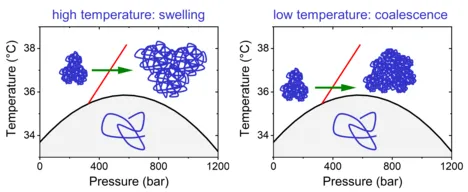Soft Matter Physics
The Soft Matter Physics Group investigates the structures of polymer systems as well as their changes and tries to elucidates the underlying mechanisms. Sytems studied by us comprise, among others, nanostructured polymer thin films, responsive polymers, polymer gels and polymers for medical applications. To investigate the structure, dynamics and kinetics of these systems, we use mainly scattering methods (light, neutrons X-rays) at large facilities. Time-resolved scattering experiments allow us to investigate the structural changes, e.g. during a temperature jump. These experiments are complemented by lab experiments, such as fluorescence correlation spectroscopy. Moreover, we investigate polymer solutions under high pressure.
More information can be found in our annual report.
The Soft Matter Physics Group ist associated with the Chair of Functional Materials.
News
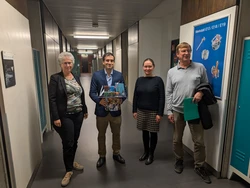
Pablo Alvarez succesfully defended his PhD thesis “Self-Assembly Behavior of Thermoresponsive Diblock Copolymers under Pressure” on September 16, 2025. Congratulations!
What high-pressure experiments with neutrons can tell about the degradation of polymer particles
High pressure significantly modulates the association of water with polymers and phase separation processes. Our recent investigations at the MLZ KWS-3 instrument reveal the pathways of aggregation of polymers into particles and their disintegration. The experiments show that pressure is key to control the hydration properties of the polymers with relevance for degradation processes in micro-plastics. Read more here.
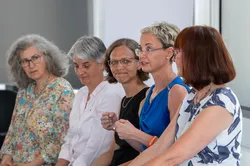
In June 2023, Christine participated in the 2nd TUM Round Table Women in STEM with female professors and students. It was great to to exchange experiences with so many young women who are studying a subject in science or technology and to meet other female professors. See a video on YouTube and photos on the event series website. (Photo: Andreas Heddergott)
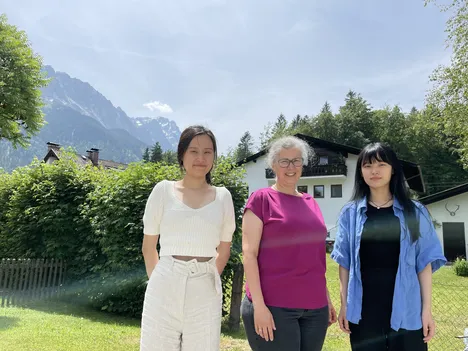
Some of us participated from 19 to 22 June 2023 in the MLZ Science Workshop in Grainau below Zugspitze. Scientific content, environment and weather were breathtaking.
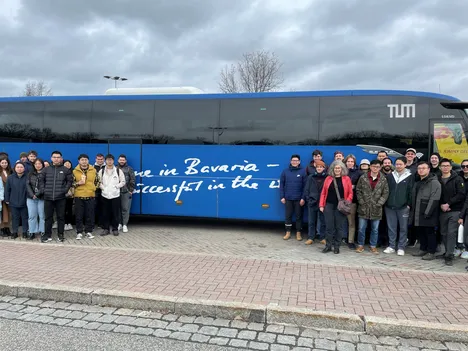
We participated in the Spring Meeting of the German Physical Society March 26-31, 2023 in Dresden. We loved loved loved the bus!
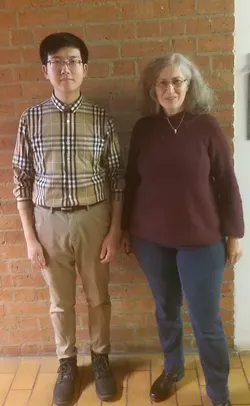
Wenqi Xu, student in the Erasmus Mundus MaMaSelf+ program, succesfully defended his master thesis "Architecture Effects on the Thermoresponsive Copolymer OEGMA-BuMA-DEGMA" on October 24, 2022. Congratulations!

In the framework of the European ERASMUS-MUNDUS program, students have the opportunity to carry out a part of the two-year master program MaMaSelf+ (Master in Material Science for Energy Applications Exploring Large Scale Facilities) at the Soft Matter Physics Group. The MaMaSelf+ programme is a cooperation of TUM with LMU Munich, universities in France (Montpellier and Rennes), Italy (Torino) and Poland (Poznan) as well as international partner institutes. Applications are possible from now on. The deadline for students from outside EU is February 10, 2022 and for students from EU March 20, 2022. Those, who are not in need of a grant, can apply by May 15, 2022. Here and here, you find information on the application process.
